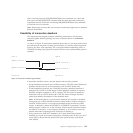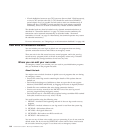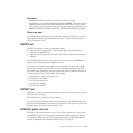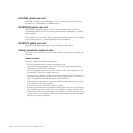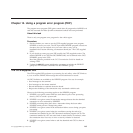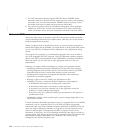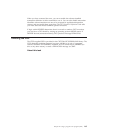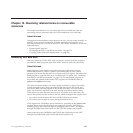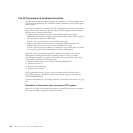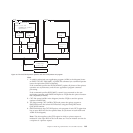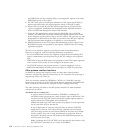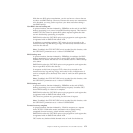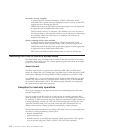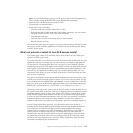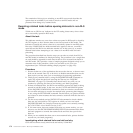
Chapter 15. Resolving retained locks on recoverable
resources
This section describes how you can locate and resolve retained locks that are
preventing access to resources, either by CICS transactions or by batch jobs.
About this task
Although the main emphasis in this section is on how you can switch from RLS to
non-RLS access mode in preparation for batch operations involving the use of
RLS-accessed data sets, it is also of interest for CICS online operation. It covers the
following topics:
v “Quiescing RLS data sets”
v “Switching from RLS to non-RLS access mode” on page 172
v “Coupling facility data table retained locks” on page 182
Quiescing RLS data sets
Data sets opened by CICS in RLS mode can also be accessed by batch programs,
provided the batch programs open them in RLS mode for read-only processing.
About this task
Batch programs cannot update recoverable data sets in RLS mode, because
SMSVSAM prevents it. Thus, to update a recoverable data set from a batch
program, first ensure that the data set is closed to all CICS regions. This allows the
batch program to open the data set in non-RLS mode for update. (See “Switching
from RLS to non-RLS access mode” on page 172.) To enable batch programs to
access data sets opened in RLS mode, CICS supports the VSAM RLS data set
quiesce and unquiesce functions.
The quiesce function enables you, with a single command, to close in an orderly
manner throughout the sysplex any data sets that are open in RLS mode, and
prevent the data sets being opened in RLS mode while they are in the quiesced
state. This function is required in the data sharing environment because many
CICS regions can have the same data set open for update at the same time. You
can use the quiesce function to take a data set offline throughout the sysplex when:
v You want to switch between RLS and non-RLS VSAM access modes.
v You want to prevent data set access during forward recovery.
CICS supports the VSAM RLS quiesce interface by providing an RLS quiesce exit
program that is driven for the quiesce and unquiesce functions. CICS regions
initiating quiesce and unquiesce requests propagate these to other CICS regions,
through the SMSVSAM control ACB and the CICS RLS quiesce exit program.
Other products such as DFSMSdss and CICSVR also communicate with CICS
through their SMSVSAM control ACBs and the RLS quiesce exit.
© Copyright IBM Corp. 1982, 2010 167



